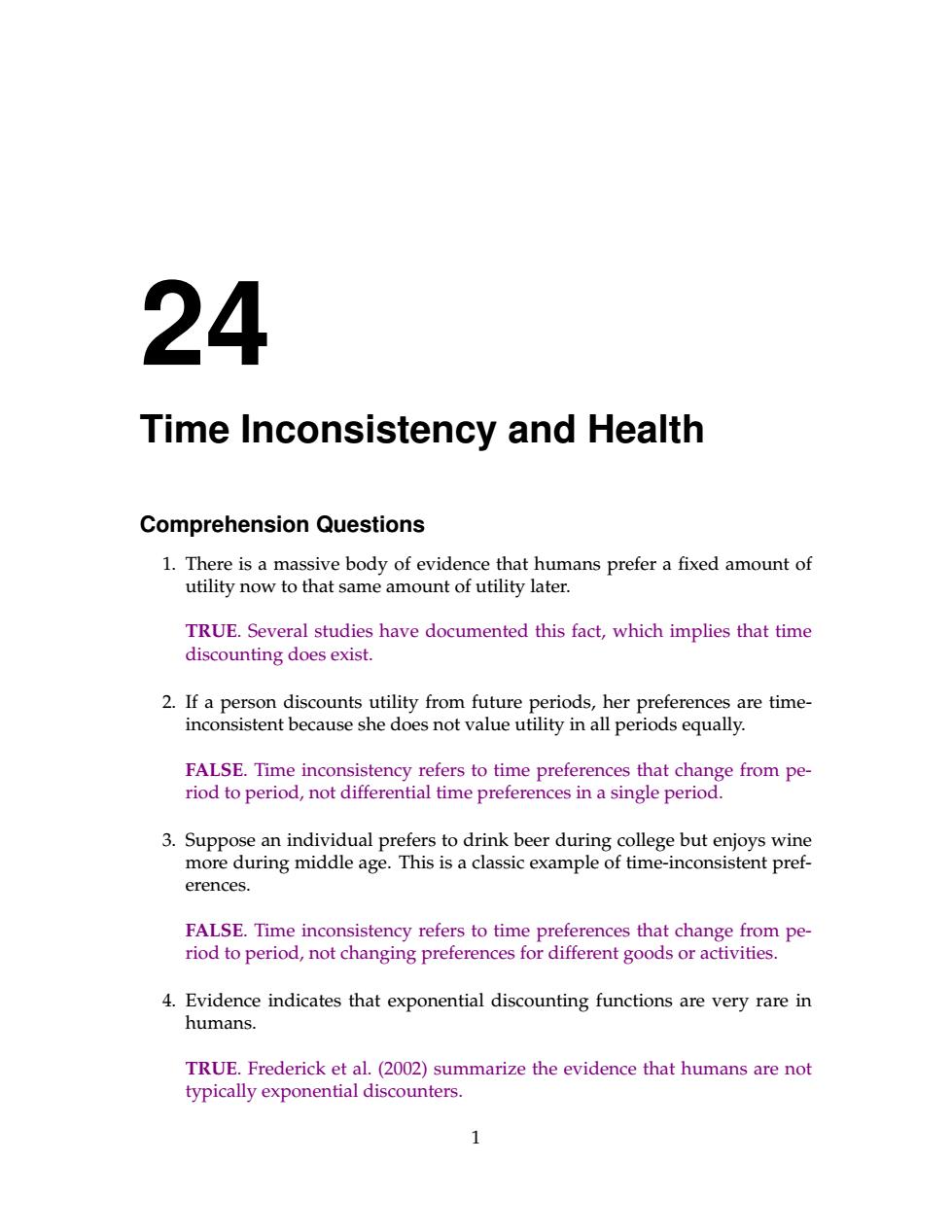正在加载图片...

24 Time Inconsistency and Health Comprehension Questions 1.There is a massive body of evidence that humans prefer a fixed amount of utility now to that same amount of utility later. TRUE.Several studies have documented this fact,which implies that time discounting does exist. 2.If a person discounts utility from future periods,her preferences are time- inconsistent because she does not value utility in all periods equally. FALSE.Time i nco nsistency re efers to time preferences that change from pe riod to period,not differential time preferences in a single period 3.Suppose an individual prefers to drink beer during college but enjoys wine mor e during middle age This is a classic e example of time inconsistent pref erences FALSE.Time inconsistency refers to time preferences that change from pe- riod to period,not changing preferences for different goods or activities. 4.Evidence indicates that exponential discounting functions are very rare in humans TRUE.Frederick et al.(2002)summarize the evidence that humans are not typically exponential discounters. 1 24 Time Inconsistency and Health Comprehension Questions 1. There is a massive body of evidence that humans prefer a fixed amount of utility now to that same amount of utility later. TRUE. Several studies have documented this fact, which implies that time discounting does exist. 2. If a person discounts utility from future periods, her preferences are timeinconsistent because she does not value utility in all periods equally. FALSE. Time inconsistency refers to time preferences that change from period to period, not differential time preferences in a single period. 3. Suppose an individual prefers to drink beer during college but enjoys wine more during middle age. This is a classic example of time-inconsistent preferences. FALSE. Time inconsistency refers to time preferences that change from period to period, not changing preferences for different goods or activities. 4. Evidence indicates that exponential discounting functions are very rare in humans. TRUE. Frederick et al. (2002) summarize the evidence that humans are not typically exponential discounters. 1